Regional development project overview from Szigetköz, Hungary - objective, outcome, scope, main pillars & impact
Project Objective: To foster regional development within Szigetköz for a sustainable and livable floodplain environment that aligns with ecological balance, community well-being, and economic prosperity (as the three pillars of ESG).
Outcome: Achievement of good water stewardship on a regional scale that supports and enhances ecosystem services, improving quality of life, promoting biodiversity, supporting economic expansion, and increasing climate resilience across the region.
Replication Potential: The Szigetköz model and demonstration sites aim to serve as an example of sustainable floodplain management. Strategies developed and demonstrated can be adapted in other regions and catchment areas to promote sustainable water and land use practices.
Scope: Szigetköz—a large island of the Danube in Hungary— and the surrounding region are attracting a new wave of interest in water-related regional development projects from the public and private sectors. The revived interest in the Szigetköz floodplain area, which has historically endured the adverse effects of large-scale water management initiatives, draws attention to the necessity of developing a complex sustainable floodplain project.
Four main pillars support this project:
- Good water stewardship: Managing water resources to balance human needs and ecological health based on sustainability and extended life-cycle assessments. Ecological, social, and economic assessment and quantification of potential water uses.
- Sustainable agriculture practices: Encouraging farming methods that preserve the environment and local biodiversity.
- Climate resilience planning: Preparation for extreme weather conditions, including flood preparedness and drought resilience strategies.
- Education and awareness: Raising awareness and understanding of sustainable practices and their benefits.
The integration of these pillars will ensure the provision of ecosystem services and promote a holistic approach to sustainable development.
Impact: This project aims to sustainably manage water resources, enhance local agriculture, and foster a green environment. The project will lead to direct benefits such as improved biodiversity, enhanced climate resilience, and a better quality of life for the inhabitants of Szigetköz while developing an assessment-based strategy to minimize the possible damage caused by climate change.
Circular Economy and Bioeconomy and Water Nexus
Stakeholders: To effectively implement these strategies, a collaborative framework will be established among local municipalities, nature conservation agencies, water resource authorities, private sector stakeholders, community representatives, and the Szigetköz Operating Committee. This partnership will ensure a cohesive and coordinated approach to achieving our objectives.


